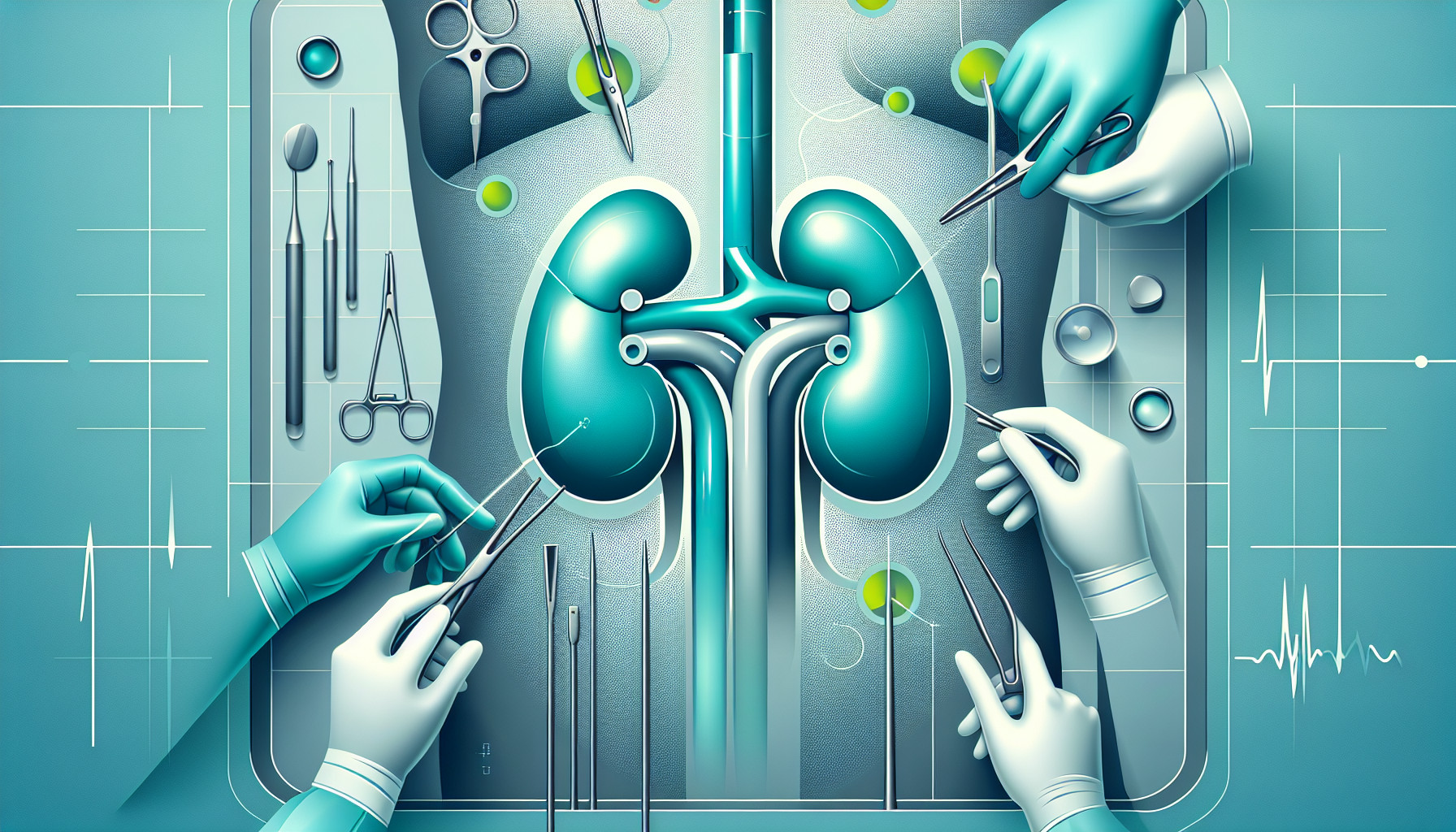Our Summary
This research paper looks at the state of kidney transplantation (KT) around the world, including how many people are waiting for a transplant, how many transplants are happening, and how successful they are. The researchers collected data from various countries across North America, South America, Europe, Asia, and Australia.
They found that access to kidney transplants varies greatly between different countries. The United States and Spain had the highest rates of kidney transplants per million people. Japan, India, Singapore, and South Korea did the most transplants using kidneys from living donors, while Spain, Brazil, France, Italy, Finland, Australia-New Zealand, and the United States did the most transplants using kidneys from deceased donors.
The survival rate of the transplanted kidney after five years was highest in South Korea, Singapore, Italy, Finland, and Japan for kidneys from living donors. For kidneys from deceased donors, the survival rate was highest in South Korea, Italy, Japan, and Singapore.
The researchers identified several issues that affect kidney transplants, including limited access to the procedure and a lack of available kidneys from both living and deceased donors. They also found that the long-term survival of the transplanted kidney can be affected by factors such as the age and health of the donor and recipient, damage to the kidney after the transplant, infection, cancer, and whether the patient sticks to their treatment plan.
The study concludes that a coordinated approach is needed to improve the situation, especially as the demand for kidney transplants continues to grow.
FAQs
- Which countries have the highest rates of kidney transplants?
- What factors can affect the long-term survival of a transplanted kidney?
- What is the survival rate of the transplanted kidney after five years in different countries?
Doctor’s Tip
A doctor might tell a patient that it is important to follow their treatment plan closely after a kidney transplant in order to ensure the long-term success of the transplant. This includes taking prescribed medications, attending follow-up appointments, and following a healthy lifestyle. Additionally, the doctor may advise the patient to be proactive in managing their overall health to reduce the risk of complications and improve the chances of a successful transplant outcome.
Suitable For
Patients who are typically recommended for a kidney transplant include those with end-stage renal disease (ESRD) who are not responding well to dialysis or have a high risk of complications from dialysis. Patients who have a suitable donor, either living or deceased, are also recommended for kidney transplant. Additionally, patients who are in good overall health and do not have any other serious medical conditions that would affect the success of the transplant are also good candidates for kidney transplant.
Timeline
Before a kidney transplant, a patient typically undergoes dialysis to help filter waste and excess fluid from their blood since their kidneys are not functioning properly. They are then evaluated by a medical team to determine if they are a suitable candidate for a transplant. If they are deemed eligible, they are placed on a waiting list for a donor kidney.
After receiving a kidney transplant, the patient will undergo post-operative care to monitor for any complications and ensure the new kidney is functioning properly. They will also need to take immunosuppressant medications to prevent rejection of the transplanted kidney. Regular follow-up appointments will be required to monitor the health of the kidney and overall well-being of the patient.
Overall, a kidney transplant can significantly improve the quality of life and longevity of a patient with end-stage renal disease. However, ongoing care and monitoring are essential to ensure the success of the transplant and the overall health of the patient.
What to Ask Your Doctor
Some questions a patient should ask their doctor about kidney transplant include:
- What is the process for getting on the transplant waiting list?
- How long is the average wait time for a kidney transplant?
- What are the risks and benefits of receiving a kidney from a living donor versus a deceased donor?
- What is the success rate of kidney transplants at this hospital or transplant center?
- What is the expected recovery time after a kidney transplant?
- What medications will I need to take after the transplant, and what are the potential side effects?
- How often will I need to follow up with the transplant team after the surgery?
- What lifestyle changes will I need to make after receiving a kidney transplant?
- What are the signs of rejection or complications after the transplant, and when should I contact the transplant team?
- How can I best support the long-term health and function of my transplanted kidney?
Reference
Authors: Hariharan S, Rogers N, Naesens M, Pestana JM, Ferreira GF, Requião-Moura LR, Foresto RD, Kim SJ, Sullivan K, Helanterä I, Goutaudier V, Loupy A, Kute VB, Cardillo M, Tanabe K, Åsberg A, Jensen T, Mahillo B, Jeong JC, Anantharaman V, Callaghan C, Ravanan R, Manas D, Israni AK, Mehta RB. Journal: Transplantation. 2024 Sep 1;108(9):e254-e263. doi: 10.1097/TP.0000000000004977. Epub 2024 Mar 19. PMID: 38499511
